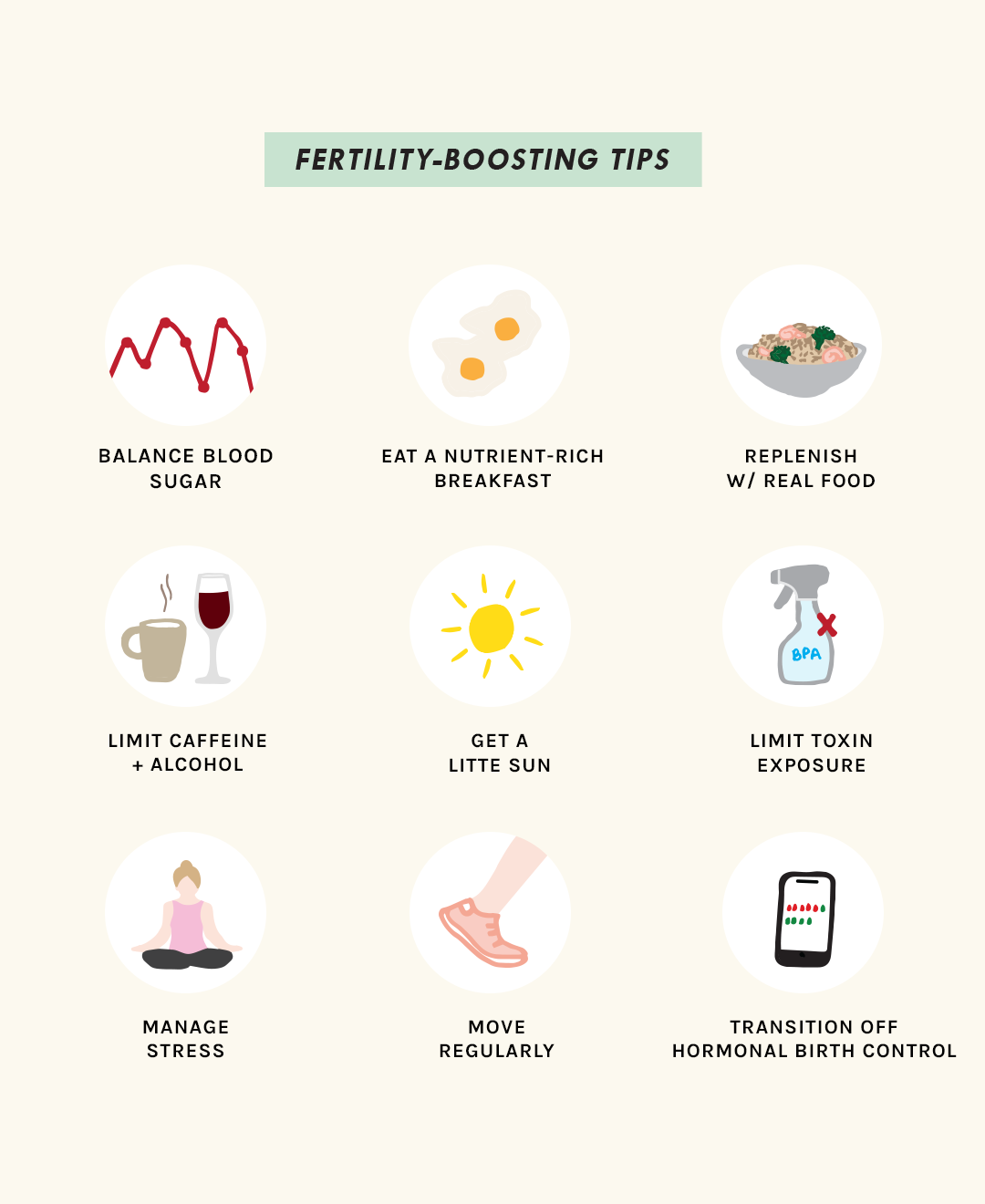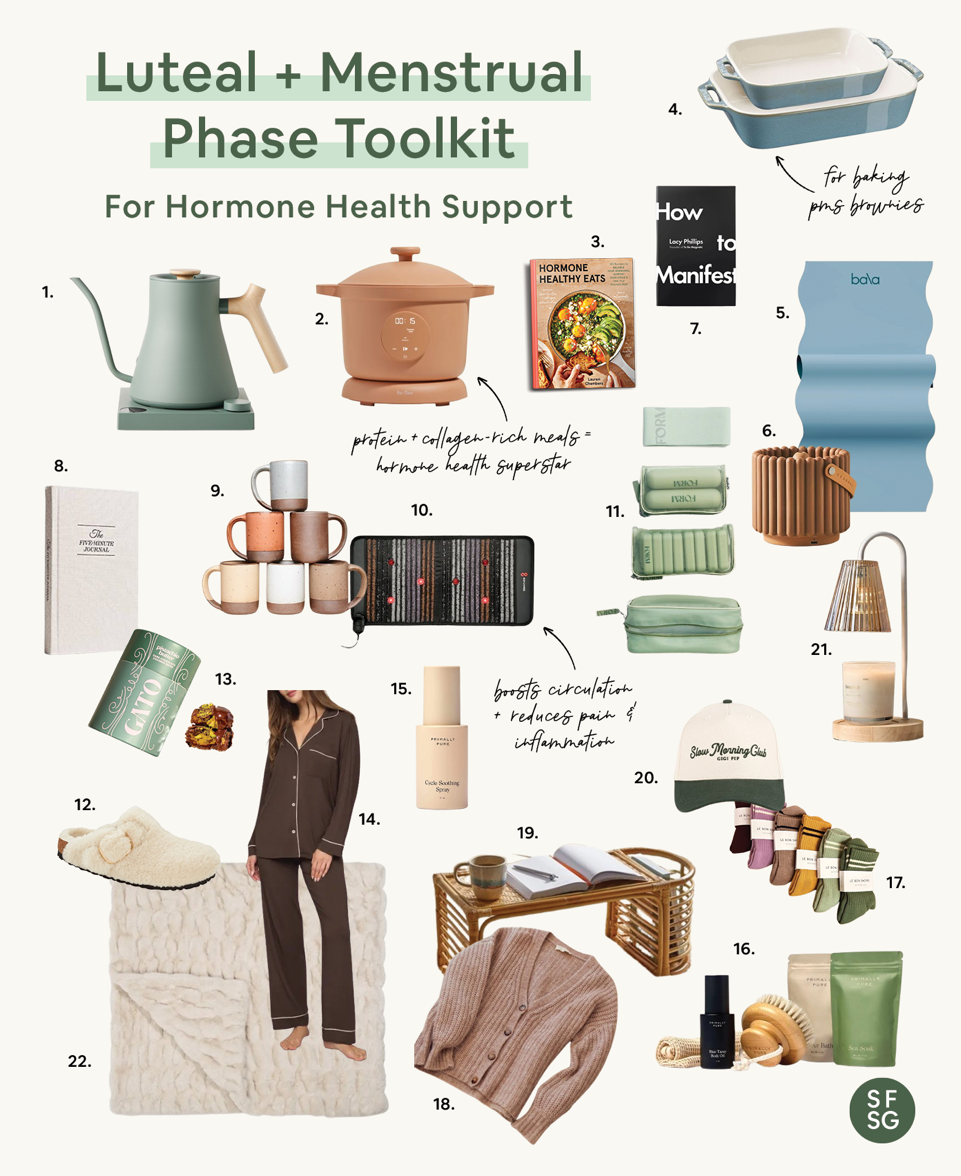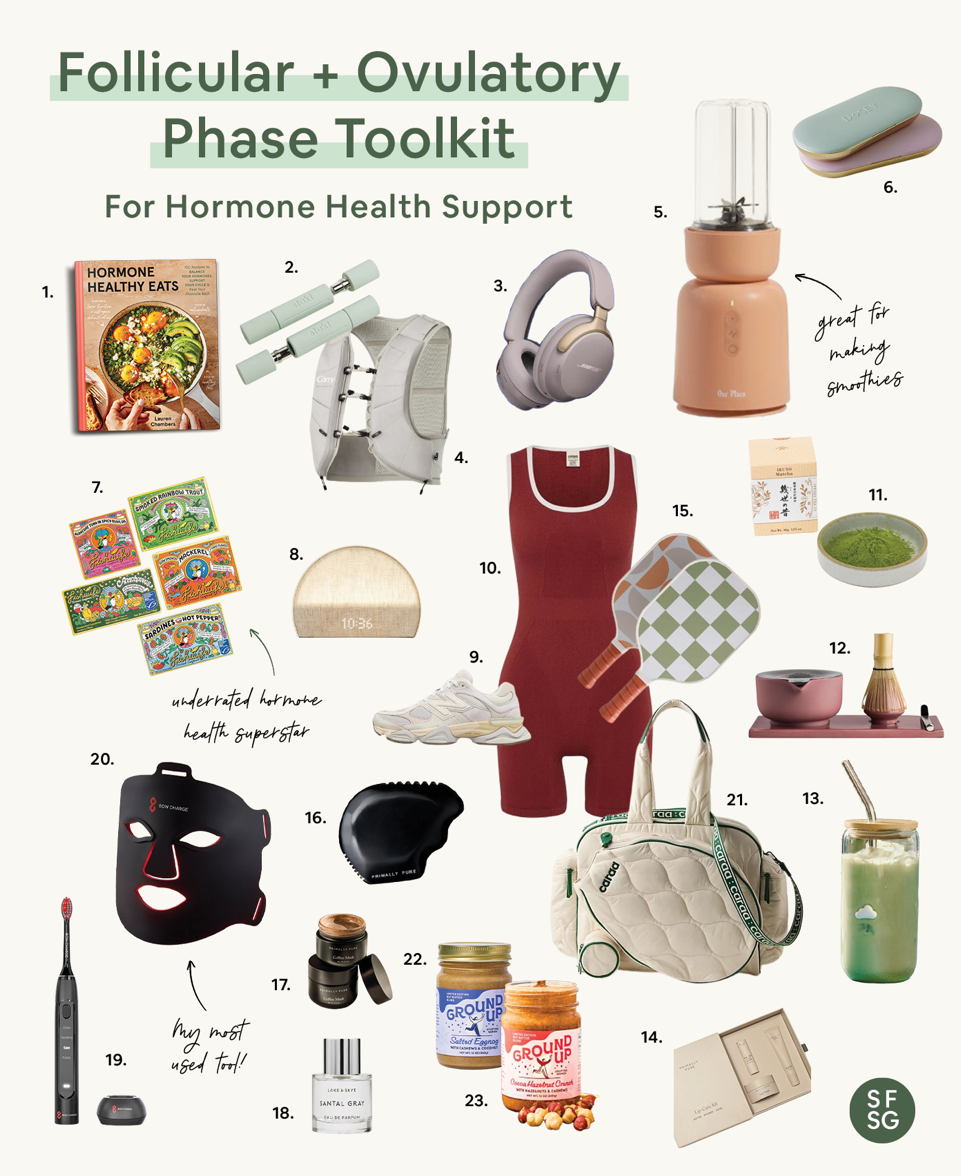recipes
lifestyle
wellness
motherhood
mindset
About
E-Books
Blog
Freebies
partnerships
hi, i'm lauren!
hey there!
I’m on a hot mission to help you balance your hormones & live your best life.
categories
Home
Quiz
Get In Touch
The Course
search:
Cookbook
Recipe key
GF
VG
P
Vegan
Gluten Free
Paleo
DF
Dairy-Free
download now
Join Hormone Healthy Eats!
Become a SFNSG insider to get my monthly Substack, Hormone Healthy Eats! Packed with the latest hormone-healthy recipes
+ tips.
jump to recipe >
Currently in the United States, the National Fertility Association reports over six million women (or 1 in 8 couples) struggle with getting pregnant.
If you’re reading this and have personally been there, are currently struggling, or know someone who is, you know how devastating the effects of infertility can be.
While problems with getting pregnant are on the rise (hello toxin exposure overload, hormone-disrupting medication + birth-control and elevated stress levels) the hopeful (and often overlooked) news is women can counteract the damaging effects of these modern obstacles with simple, natural and powerful ways.
So whether you’re actively trying to conceive or dream of becoming a mother in the future, you can take steps now to boost and preserve your fertility — and reduce the need for expensive and invasive treatments along the way.
BONUS — Taking ANY steps to naturally boost your fertility and balance your hormones will only work to improve your life and health in a variety of ways (think less cramping and PMS, increased energy and productivity, better moods, an easy to maintain healthy weight, glowing skin, thick hair, better sleep, etc.)
Looking for more support on your journey to a healthy preconception, pregnancy + baby? Check out my Fertility Boosting Fundamentals Guide.
BALANCE BLOOD SUGAR
Blood sugar balance is KEY for all healthy hormone function, but especially when it involves fertility. Engaging in activities that regularly disrupt your blood sugar (i.e. regularly eating sugar or processed food, over consuming alcohol or caffeine, skipping meals, strict diets or intermittent fasting, high stress activities, not sleeping, etc.) causes your blood sugar to spike and crash, rather than remain steady, consistent and balanced (homeostasis is always the goal and your body will always work towards it).
Blood sugar spikes cause your body to excrete the hormone insulin in order to get your blood sugar back to normal levels quickly. Overtime, this excess of insulin can cause insulin resistance, which is a major risk factor for PCOS and may even cause damage to a woman’s eggs.
On the flip side, low blood sugar stimulates the body’s release of stress hormones adrenaline and cortisol, which overtime depletes your body’s progesterone production, an absolutely crucial aspect of a healthy menstrual cycle and pregnancy.
The goal here is goldilocks style — not too high, not too low, balanced and just right. Disengaging with the behaviors listed above and focusing on nutrient-dense meals with an optimal balance of protein, fat and fiber ensure your blood sugar levels stay stable, priming your body for a healthy cycle, conception and pregnancy.
EAT A NUTRIENT-RICH BREAKFAST
While intermittent fasting is currently trending, research shows eating a nutrient-rich breakfast every morning could help you regulate your cycle, reduce infertility and help you conceive.
This is attributed to helping you optimize your blood sugar, which is a crucial pillar of hormone health and fertility (see above for more information).
Try aiming for an optimal balance of protein, fat and fiber to satisfy your body’s micronutrient needs, optimize energy and curb blood sugar spikes or dips. Any of the recipes in my Fertility Boosting Fundamentals Guide apply.
REPLENISH MICRONUTRIENTS W/ ORGANIC, REAL FOOD
The energy and nutrients you obtain from your diet are the raw materials your body needs to produce hormones and properly fuel your body.
If your diet doesn’t supply enough energy or “materials” to make all the hormones you need, it’ll prioritize production of stress hormones first because they’re essential for survival. This leads to unhealthy fluctuations in your hormone levels, which can trigger a variety of symptoms, especially infertility (when your body is in “survival mode” getting pregnant falls to the lowest of priorities).
Lucky for us, giving our hormones the foundation of a high-quality, nutrient-dense diet is the first (and most CRUCIAL) step towards natural hormone balance and optimal health.
Focus on incorporating as many nutrient-dense, real foods into your diet as possible, including — leafy greens, avocado, pumpkin seeds, walnuts, eggs, legumes, cruciferous vegetables, low-mercury omega-3 rich fish (like salmon), etc.
***It’s also important to buy organic and local when possible, as this limits your exposure to endocrine-disrupting chemicals and ensures nutrient density due to a decreased transit time.
CAFFEINE + ALCOHOL IN MODERATION
Look, I’m not here to tell you to give up your daily coffee or nightly glass of vino, but if you’re trying to get pregnant it is important to practice these habits in moderation.
Overconsumption of these substances majorly messes with our blood sugar (which you now know has a detrimental affect on your fertility). They both impair your liver, which can impact your body’s ability to naturally detoxify and lead to a buildup of hormones, most commonly in the form of estrogen dominance.
The good news here is that the science shows both in moderation are fine, it’s excessive consumption (i.e. more than 2 cups of coffee per day or 3+ drinks per night) that impair fertility, liver function and hormone health.
GET A LITTLE SUN
Despite everything we’ve been told about avoiding the sun, it’s truly vital for fertility and hormone health. Natural vitamin D3 maximizes your ability to conceive naturally and studies have shown that 93% of women dealing with infertility issues are deficient in this micronutrient. You can take a D3 supplement to help, but it won’t replace natural D3 through sunlight, which synthesizes this hormone to help you boost levels naturally.
Try getting in a walk, taking your workout in the yard or eating your lunch outside every day.
***Don’t forget to choose a non-toxic sunscreen to apply after your first 20 minutes in the sun, as many sunscreen products contain chemicals that disrupt your hormones and fertility.
LIMIT TOXIN EXPOSURE
Speaking of toxins, consistent exposure to chemicals puts both your hormone health and fertility at major risk. Research has shown that many of our everyday products (think makeup, lotion, shampoo, laundry detergent, cleaning supplies, nail polish, etc.) contain bioaccumulative toxins that stay in our systems indefinitely, creating disease-causing free radical damage and blocking the body’s natural hormone production, leading to imbalances that can show up as infertility, heavy periods, thyroid disease, PCOS, endometriosis, fibroids, cysts, etc.
Opting for clean products where possible is key to protecting your fertility and hormone health. Check out my shop page for some of my favorite nontoxic products and tips.
MANAGE STRESS
As mentioned earlier, chronic stress instructs the adrenals to consistently pump out cortisol, keeping our bodies in a constant state of fight or flight mode. The elevated cortisol levels tell our ovaries to decrease estrogen and progesterone, as the body must prioritize a stress response over other functions (because it thinks it has to do so in order to survive). This means our body diverts resources from things not important in a life or death situation — including ovulation, so it’s seen as a key culprit of infertility.
Managing stress is a key pillar of hormone balance and fertility, but it’s not realistic to expect stress to just go away, as we will encounter stressful situations and events throughout our life (hello global pandemic). The important thing to focus on here is having tools available to manage and mitigate stress, so that we’re able to return to homeostasis and optimize our hormone health. Going for a walk, calling a friend or hanging out with them IRL (if possible), snuggling a pet or loved one, listening to good music, practicing breathing techniques and reading a good book are some of my favorite go-to’s and BONUS, most of them are free.
MOVE REGULARLY
Consistent exercise and movement contributes to improved insulin regulation and sensitivity while decreasing stress and inflammation, all of which is important for optimal fertility and hormone health. That being said, too much intense exercise (training for a marathon, bodybuilding, etc.) can have a negative impact on insulin resistance and your hormones as a result.
This is because it causes stress hormone cortisol to rise, driving your body into survival mode and leading it to increase visceral fat stores (so it can “save” energy) that release inflammatory proteins, making it almost impossible to lose weight and increasing the likelihood of a hormone imbalance.
Low-impact workouts that move your lymph (prompting natural detoxification and elimination of excess estrogen) like rebounding (jumping on a trampoline), yoga, pilates, and simply walking are all ideal ways to get in regular movement.
TRANSITION OFF HORMONAL BIRTH CONTROL
This might seem like a big DUH if you’re already in the midst of trying to get pregnant, but for those of you that are still a ways out, getting off hormonal birth control now could increase your odds of naturally conceiving down the road.
This is because hormonal birth control blocks your estrogen and progesterone receptors, prohibiting you from ovulating and leading to hormone imbalances that disrupt fertility such as estrogen dominance or low progesterone.
Not only are balanced levels of estrogen and progesterone important for fertility, but for a healthy pregnancy as well. In fact women with low progesterone are 39% more likely to miscarry, as progesterone keeps the uterine lining healthy enough for an egg to successfully implant and survive. If you suspect you may have low progesterone, you can get your levels checked via a blood test on cycle days 3 and 21.
BOTTOMLINE
You have more control over your fertility than we’re sometimes lead to believe, and there are plenty of simple and impactful lifestyle changes you can make to naturally increase your chances of getting pregnant with a healthy baby. I hope you found this post helpful, and here are some additional resources I recommend that may support you on your journey:
+ Fertility Boosting Fundamentals Guide
+ 28-Day Hormone Balance Reset Plan
+ How to Optimize Ovulation + Increase Your Odds of Getting Pregnant Naturally
+ Trying To Get Pregnant? These Fertility-Boosting Foods + Recipes Can Help
+ How To Really Tell If You’re Ovulating
+ How To Boost Male Fertility Naturally
+ How To Have Better Sex + Boost Libido Naturally
+ How To Tell If You Have A Thyroid Imbalance + Optimize Thyroid Health
+ Hormone-Balancing Foods To Eat For Each Phase of Your Menstrual Cycle
+ Do You Have A Hormone Imbalance? Take This Quiz To Investigate
+ Hormone Balancing Superfoods + Staples For Your Freezer, Fridge + Pantry
+ How To Naturally Balance Your Hormones with B-Vitamins
+ How To Support Your Hormones During Stressful Times
+ Your Guide on Cooking For Natural Hormone Balance

If you loved that...

01.

02.

03.

04.

05.
hey!
Keep Browsing
Site
Keep Browsing
Site
the
about
e-books
blog
downloads
quiz
Welcome friend, I'm lauren.
I’m honored to support you on your journey to optimal hormone health + happiness. Thanks for being here babe.


